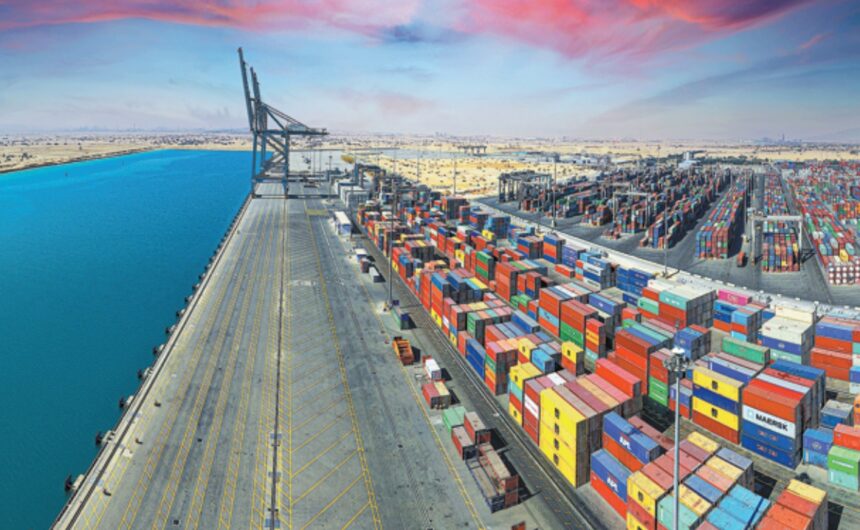Historically, trade has been the garb in which the colonial extraction of resources hides itself to cross the indigenous territories and then reveals its sharp teeth. In their quest for political and economic dominance, the powerful nations often exploit the weaker ones under the guise of trade, development, and investment. The Africans, formerly colonised by the British and French, were sent as slaves to the Americas to produce cotton, so the spinning jennies of Britain’s Industrial Revolution kept working. Now, China is taking its turn with its Belt and Road Initiative (BRI), often portrayed as China’s economic outreach or its “go out” strategy. However, these economic corridors and port investments are but one side of the coin; the flip side of it is China’s quiet expansion of military logistics throughout Africa.
China adopted its Belt and Road Initiative under President Xi Jinping in 2013 as a strategy to link new trade corridors with China’s economy. Africa, being a crucial source of raw material for the growing Chinese economy, is an important part of this initiative. Therefore, out of the six planned corridors, three are running through Africa. These economic corridors are located in East Africa, the Egypt and Suez region, and Tunisia. Apparently, China is funding transport infrastructure such as roads, railways, and ports in Africa to ensure a “sanction-resilient” supply of raw materials to China’s industrial economy. However, Chinese-funded ports in Africa are built to a “dual-use specification.” This means that these ports can accommodate commercial trade but can also be switched to military use with appropriate depth, landing, and docking zones. The aim of this dual-use infrastructure is to enhance the People’s Liberation Army’s (PLA) experience of overseas military operations.
China opened its first permanent military base at Doraleh Port in Djibouti in August 2017. Although China officially labels it a “logistical support facility,” in reality it is a fortified naval base built to house thousands of troops and large warships. It includes underground weapon storage, spying equipment, and strong defences against both air and ground attacks. Djibouti’s geostrategic significance comes from its location at the Horn of Africa, near the Bab al-Mandab Strait, a key link between the Red Sea, the Indian Ocean, and the Mediterranean via the Suez Canal. This makes it central to world trade and China’s Maritime Silk Road. Already hosting US, French, Italian, and Japanese military bases, Djibouti offers China the prestige of joining the “elite group” of military powers.
In 2021, the US intelligence reports and defence officials also raised speculations about China’s “intentions to build a naval base on the Atlantic coast of Africa,” especially in Equatorial Guinea at the port of Bata. China’s long-standing ties with Equatorial Guinea include major investments in infrastructure, especially at Bata port, which now has excess capacity and naval facilities. China also helped build the country’s telecom systems, including an undersea cable that connects to Europe. Given that China’s Djibouti base is strategically located near similar cables for intelligence gathering, this setup at Bata hints at a covert strategy to expand military and surveillance capabilities in the Atlantic. This naval base will ensure China’s permanent presence in the Atlantic Ocean, directly opposing the United States’ eastern seaboard.
China has significantly expanded its presence in African port infrastructure through financing, construction, and operation by Chinese firms, with an estimated 78 ports across 32 African countries having Chinese involvement. The Chinese port at Walvis Bay in Namibia has the capability to house eight guided missile destroyers. Similarly, Mombasa port in Kenya has military-grade docks and can host Chinese warships and refuel most of its naval fleet, making it an important logistic base. Chinese officials consider it the most strategic location in East and Central Africa, crucial for securing supply routes and accessing inland resources. Since the year 2000, the Chinese navy has conducted “58 port calls” and “19 bilateral and multilateral military exercises” in Africa.
The local governments’ response to Chinese military expansion is multifaceted and involves an interplay of economic, political, and security considerations. Many African governments welcome China’s security support because it offers cheaper weapons, easier loans, and fewer restrictions than Western countries. China also backs those regimes and ruling political parties that favour its military expansion. Many governments see China as a means to strengthen their defence. Kenya has deepened military ties with China through arms deals, training, and joint efforts. Tanzania’s military structure is largely shaped by China. Algeria, Uganda, and Nigeria are also partnering with Chinese firms to boost local weapons production. Some countries, such as Kenya, have also voted alongside Chinese positions at the global level. However, a significant portion of the African population is concerned about China’s involvement in their countries. There is a perception that Chinese infrastructure projects only employ Chinese labour and do not benefit the local community. Chinese products and services are also considered to be substandard. Protests have also emerged in countries like Nigeria over uncompensated demolitions for railway constructions.
In all these developments, what is at stake is the sovereignty of African countries. China uses large loans and investments to make countries economically dependent. As the biggest investor and lender, China gains significant leverage in the economic policy of the African countries. African nations, like Ethiopia, are tied up in the debt cycle, and in case they can’t repay, China can take control of their assets. China also values stability and profit over governance standards, so it often partners with authoritarian governments. In places like Angola and Djibouti, this support helps entrench personal rule. For example, Djibouti’s president uses Chinese money from ports and bases to strengthen his grip on power and block democratic change. Moreover, China’s military presence in Africa may pull those countries into global wars, risking their position of non-alignment.
To conclude, while China’s infrastructure investment in Africa is discussed, its quiet expansion of military bases is often neglected. This dual-use infrastructure, fit for both commercial and military purposes, is China’s new strategy to expand its naval influence under the garb of trade and commerce. What is at stake is Africa’s sovereignty—a continent already robbed of its resources by decades of colonialism.
















